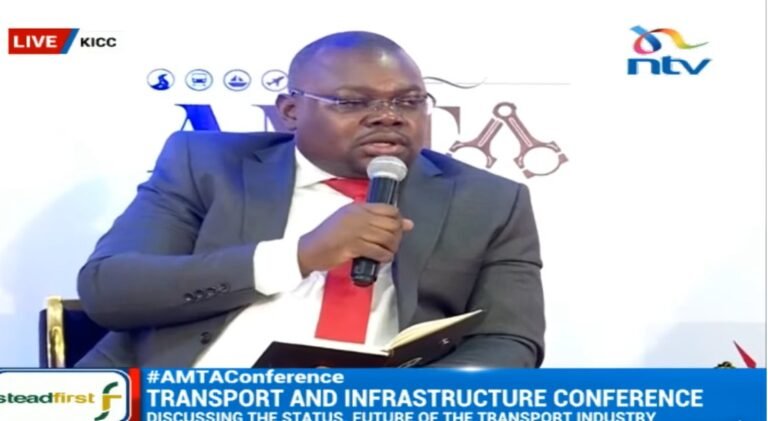
Kenyan detectives have unmasked what could be one of the boldest fraud operations in recent years a multi-million dollar fake gold syndicate that nearly swindled an American businesswoman out of USD 5.6 million.
At the center of the elaborate plot are two men now in custody Michael Otieno Onyango and Andrew Clifford Otieno accused of orchestrating a web of deception that stretched from Nairobi’s uptown cafes to private estates used for illicit “gold deals.”
The Deal That Never Was
It began like many other scams in Kenya’s shadowy gold trade a promise of quick profit from a supposed gold consignment waiting to be exported.
According to investigators, the suspects posed as legitimate dealers and approached the American investor with an irresistible offer: 70 kilograms of pure gold, ready for shipment from Nairobi to Dubai.
To make the deal appear authentic, they presented documents bearing the letterhead of the Ministry of Mining and even offered to facilitate official testing of the gold.
But their target was no ordinary victim. Cautious and experienced, the businesswoman demanded verification from the Ministry of Mining before releasing any money. She insisted that any transaction be authenticated through a government-certified test a move that would later expose the entire scheme.
How the Scammers Slipped Up
Sources familiar with the investigation told Kenya Today that the suspects initially agreed to cooperate with the Ministry’s testing process to maintain the illusion of legitimacy. However, when the day of testing arrived, neither showed up at the appointed time.
Detectives say this was the first red flag that something was seriously wrong.
Refusing to back off, the businesswoman decided to continue communicating with the suspects, pretending to remain interested in the deal while quietly alerting law enforcement.
Her strategy and her composure would prove critical in bringing the scammers down.
The Trap at Rose Villa Estate
A second meeting was scheduled. This time, one of the suspects sent a car to pick up the woman from Yaya Centre, one of Nairobi’s busiest shopping hubs.
The driver, claiming to be a business associate, suggested they stop for coffee before heading to “finalize paperwork.” Instead, she was driven to House No. 27 at Rose Villa Estate, a quiet residential area believed to be the group’s operational base.
Inside, detectives say, she found the two men waiting polite, confident, and ready to seal the fake deal.
They tried to persuade her to make a partial payment to “secure export clearance.” But she remained calm and non-committal, aware that officers were monitoring the situation.
Then came the turning point.
As the discussions dragged on, one of the suspects appeared uneasy. He whispered something to his colleague, glanced toward the window, and abruptly stood up. Without warning, the two dashed out of the house, jumped into a blue Mazda CX-7, registration KDP 336R, and sped off.
The Chase and Arrest
The escape, however, was short-lived.
Flying Squad detectives and officers from the Directorate of Criminal Investigations (DCI) had been tracking the suspects for days. Within minutes, an alert was issued, and units positioned along Argwings Kodhek Road moved in.
The blue Mazda was intercepted after a brief chase.
Inside were the two fugitives visibly shaken, realizing their operation had collapsed. They were immediately handcuffed and taken to the DCI headquarters for interrogation.
Detectives later escorted them back to Rose Villa Estate to conduct a search of the premises. What they found shocked even seasoned investigators.
Inside the Fake Gold Factory
The house, outwardly ordinary, had been converted into a mini-lab for fake gold processing.
Two smelting machines, nineteen smelting moulds, and several metallic containers were recovered. Detectives also found materials resembling gold dust, moulding equipment, and tools believed to be used to produce counterfeit gold bars for display during negotiations.
The operation, investigators say, had been running quietly for months, possibly linked to a wider network of fraudsters targeting foreign investors through social media and referrals.
Documents recovered from the scene suggest the syndicate used fake export certificates and counterfeit seals resembling those used by the Kenya Revenue Authority and the Ministry of Mining.
The Anatomy of the Scam
The gold scam industry in Kenya has evolved into a sophisticated web of deceit involving fake documents, rented offices, and convincing setups designed to exploit unsuspecting foreigners.
Typically, fraudsters lure victims with claims of having gold sourced from the Democratic Republic of Congo or from artisanal miners in western Kenya. They use real-looking bullion samples to gain trust and demand “export facilitation fees” before vanishing with the money.
In this case, investigators believe Onyango and Otieno were acting as part of a broader network that uses local fixers, drivers, and fake customs officers to reinforce the illusion of legitimacy.
Their target, according to police sources, had been identified after they learned she was seeking gold suppliers in East Africa through a business contact in Dubai.
The Victim Who Outsmarted the Fraudsters
What makes this case stand out is the victim’s quick thinking.
Unlike many who have fallen prey to similar scams, the American businesswoman refused to release any funds without due diligence. Her decision to contact the Ministry of Mining, followed by her quiet collaboration with detectives, turned the tables on the scammers.
Her courage also provided investigators with valuable insights into how such operations are coordinated. It is understood that she recorded phone calls, saved text messages, and even photographed some of the suspects’ documents all of which have now been handed over as evidence.
Police Crackdown on Fake Gold Syndicates
Kenya’s Directorate of Criminal Investigations has been under increasing pressure to dismantle the network of gold fraudsters tarnishing the country’s reputation.
Over the past three years, dozens of foreigners from the United States, the United Arab Emirates, and West Africa have reported losing millions of dollars to fake dealers operating in Nairobi.
In 2019, a similar scam involving fake Congolese gold cost a Saudi investor over USD 3 million. Several high-profile names were mentioned, but few were ever prosecuted.
The DCI says this latest arrest signals a renewed commitment to tackling financial fraud head-on.
A senior officer involved in the case told Kenya Today that more arrests are expected. “These two are part of a much bigger ring. We believe they were frontmen for a syndicate that includes document forgers and cross-border contacts,” the officer said.
The Cost of Fraud to Kenya’s Image
Gold-related scams have repeatedly embarrassed Kenya on the international stage. The scams not only damage the country’s credibility among investors but also undermine genuine exporters operating legally under the Ministry of Mining.
Economic analysts warn that every such incident chips away at investor confidence, particularly in the mining and logistics sectors.
Kenya’s security agencies have urged foreign investors to conduct background checks before engaging in mineral or commodity transactions.
What Happens Next
Both Michael Otieno Onyango and Andrew Clifford Otieno remain in custody as detectives finalize investigations before presenting them in court.
They face multiple charges, including obtaining money by false pretence, conspiracy to defraud, and possession of equipment intended for criminal use.
Authorities are also probing possible links to other ongoing investigations involving similar scams targeting investors from the United States and Asia.
The DCI has urged victims of such fraud to come forward, saying international cooperation remains vital in dismantling the networks that operate across borders.
A Warning to the Public
The arrest serves as yet another reminder of the growing sophistication of financial fraudsters in Nairobi’s underground economy.
Police are warning Kenyans and foreign investors alike to remain cautious when approached with deals that promise quick profits from gold, oil, or gemstones.
As one senior detective put it:
“If the deal sounds too good to be true, it usually is.”



